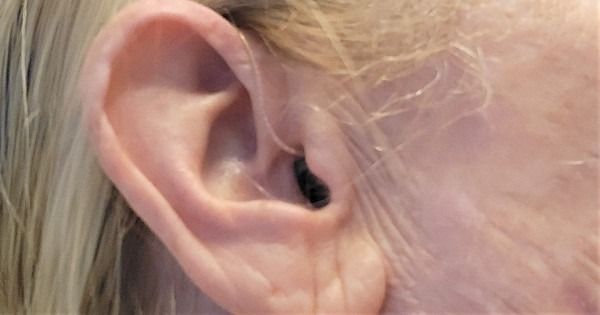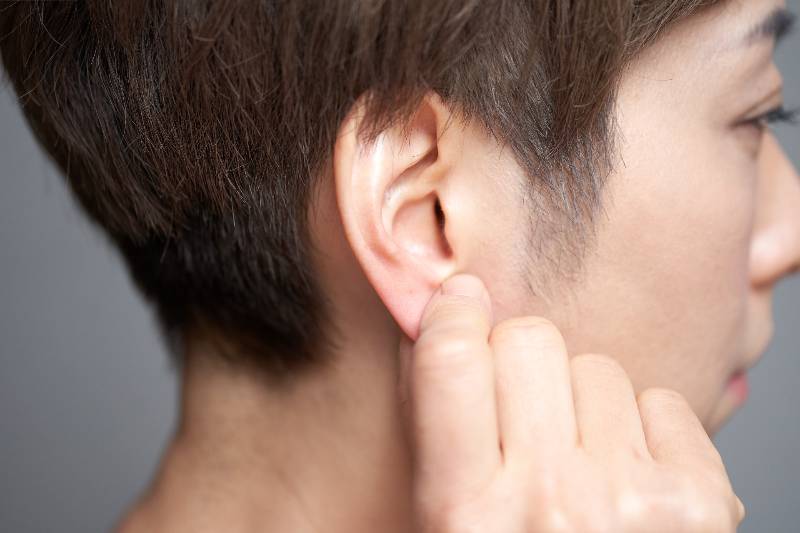Introduction
Sensorineural hearing loss (SNHL) is an auditory affliction that impacts countless people globally. The arrival of this ailment often heralds a storm of physical transformations, psychological effects, and modifications to daily habits and interactions. Yet, the examination of SNHL goes beyond its health-related aspects; its substantial influence on the emotional state, lifestyle, and relationships of the individuals afflicted provides a riveting research field that necessitates thorough scrutiny.
In this insightful discourse, we will delve into the diverse impacts of SNHL, sourcing from personal accounts, probing the emotional burden, establishing the connection between SNHL and life quality, and investigating a range of adaptation strategies. Furthermore, we will engage in a scholarly analysis of the part played by support groups, the hurdles encountered in the professional environment, and the subtle effects on family interactions, granting a panoramic perspective of the complex world embroidered by SNHL.
The purpose of our inquiry is to offer an academic and compassionate comprehension of the maze that SNHL embodies, equipping readers with the knowledge and insights necessary for maneuvering the expedition that SNHL often signifies. This mission demands an immersive exploration of both quantitative analysis and personal narratives, as the amalgamation of the two creates the groundwork for a holistic understanding of life with SNHL.
Lipo-Flavonoid Plus, Tinnitus Relief for Ringing Ears
Considered the most effective over-the-counter solution by ENTs, this product comes highly recommended by doctors for reducing ear ringing. Its effectiveness has been acknowledged and trusted by medical professionals in the field.
Please note that exposure to heat or sunlight may cause melting or damage to the product. To ensure the product’s integrity, customers are advised to be present during the delivery process.
Formulated with a natural lemon bioflavonoid complex, this product contains a rich blend of essential vitamins and nutrients such as Vitamins C, B1, B2, B6, B12, Calcium, Choline Bitartrate, Inositol, Niacin, and Pantothenic Acid. These ingredients provide vital nutritional support for the inner ear, making it beneficial for individuals with tinnitus and Meniere’s syndrome.
Living with Sensorineural Hearing Loss: Personal Stories
Personal accounts offer an insight into the authentic experiences of individuals living with sensorineural hearing loss. These narratives embody the journey of discovery, the comprehension of the condition, the adaptation to new realities, and the demonstration of resilience in tackling challenges. One such account belongs to James, a music tutor who first perceived alterations in his hearing when he was unable to distinguish the subtle differences in piano notes. Another poignant story is that of Susan, a mother of two, who grappled with not being able to hear the laughter of her children and the subtleties in their voices.
These stories depict the wide-ranging impacts of SNHL, indicating that the condition’s consequences vary substantially across individuals. Some people, like James and Susan, initially express feelings of grief, exasperation, and seclusion. Yet, they also relay their journey towards acceptance, their endeavors to adjust, and their resolve to not allow SNHL to control their lives. For instance, James found solace in instructing music theory and composition, while Susan embraced the challenge by using hearing aids and learning to lip-read to improve communication with her children. Through their accounts, we realize that living with SNHL isn’t about the loss of a sense, but about discovering alternative ways to perceive the world.
Emotional Impact of Sensorineural Hearing Loss: A Deep Dive
The emotional ramifications of sensorineural hearing loss are profound and far-reaching, penetrating various aspects of an individual’s life. For many, SNHL can incite feelings of irritation, sorrow, rage, and occasionally, a deep sense of grief. Studies have shown that individuals living with SNHL are more likely to experience emotional distress and have a higher incidence of anxiety and depression compared to the general population.
Yet, the emotional toll of SNHL is not static or unidimensional. It is a dynamic narrative that evolves over time, molded by elements such as individual resilience, support network, access to hearing aids, and coping tactics. Research has discovered that the emotional well-being of many individuals with SNHL improves over time, especially those who proactively seek help and utilize assistive devices. Thus, while the emotional influence of SNHL is undoubtedly significant, it isn’t an unalterable truth, offering a ray of hope amidst the difficulties.
What to Look for in Inexpensive Hearing Aids
Sensorineural Hearing Loss and Quality of Life: The Undeniable Link
The repercussions of sensorineural hearing loss (SNHL) spill over from the field of auditory perception, substantially affecting the quality of life of those involved. This link is validated by several studies pointing towards a decrease in life contentment, elevated stress levels, and reduced engagement in social activities among those afflicted with SNHL.
In addition, the impact of SNHL on life quality doesn’t merely restrict itself to the afflicted individuals. It creates a cascading effect on family, friends, and caregivers, modifying their lifestyle, communication habits, and emotional well-being. The transformative effects of SNHL on people’s lives highlight the necessity for comprehensive management strategies that not only incorporate hearing aids and medical interventions but also psychological support and lifestyle adjustments.
Tinnitus: why it’s still such a mystery to science
Adapting to Life with Sensorineural Hearing Loss: Coping Strategies
Living with SNHL requires significant adjustment and the cultivation of coping strategies. These strategies may span from using assistive listening devices and mastering lip-reading, to seeking professional guidance from audiologists and psychologists, to making lifestyle modifications. For example, many individuals with SNHL prefer to occupy a specific spot during gatherings to aid in better comprehension of conversations or reduce background noise.
Another powerful strategy is adopting self-advocacy. By gaining a better understanding of their condition, individuals with SNHL can voice their needs to their family, friends, and coworkers, promoting an environment of understanding and support. Moreover, resilience and a positive mindset greatly contribute to improved coping with SNHL. Collectively, these strategies stress that living with SNHL is not merely about managing hearing loss, but also about orchestrating a satisfying and meaningful life amidst the challenges.
The Role of Support Groups in Managing Sensorineural Hearing Loss
Support groups have a crucial role in managing SNHL. They provide a platform for individuals to share their experiences, air their frustrations, learn coping strategies, and, most importantly, realize that they are not alone in their journey. The communal experiences within these groups often create a sense of belonging, reducing feelings of isolation and stigma associated with SNHL.
Additionally, the collective wisdom and experiential knowledge within these groups often serve as invaluable resources for newly diagnosed members grappling with their condition. Thus, the role of support groups extends beyond providing emotional comfort; they also act as hubs for practical advice, medical information, and invaluable tips. They stand as a testament to the power of shared experiences and collective resilience in navigating the journey of SNHL.
Employment Challenges for Individuals with Sensorineural Hearing Loss
Navigating the professional world with sensorineural hearing loss poses unique challenges. Individuals often encounter obstacles related to communication, discrimination, and restricted job opportunities. Communication challenges can emerge due to background noise, group discussions, or meetings, especially in roles demanding constant interpersonal interactions.
Despite laws against discrimination towards individuals with disabilities, subtle prejudices may persist, leading to disparities in hiring, promotions, and compensation. While these challenges may seem overwhelming, it’s vital to note that they aren’t insurmountable. Many organizations are progressively recognizing the importance of inclusivity and providing accommodations such as flexible work schedules, assistive technologies, and awareness training to their employees.
How Sensorineural Hearing Loss Affects Family Dynamics
The impact of sensorineural hearing loss isn’t limited to the individual diagnosed with the condition; it also extends to their family. Family dynamics can be significantly influenced by a member’s SNHL. Communication styles may need to adjust, roles may shift, and emotions can run high, especially during the initial adjustment period.
However, these changes can also foster empathy, resilience, and stronger bonds within the family. For instance, children of parents with SNHL often develop remarkable emotional sensitivity and proficiency at non-verbal communication. Spouses and partners can learn to appreciate the quiet moments of connection. Ultimately, the effects of SNHL on family dynamics underscore the fact that it’s a shared journey rather than a solitary battle.
Conclusion
In conclusion, sensorineural hearing loss (SNHL) is a multifaceted condition that impacts various aspects of an individual’s life. It extends beyond the realm of auditory perception, affecting emotional well-being, quality of life, employment opportunities, and family dynamics. However, through personal stories, coping strategies, support groups, and adaptations, individuals with SNHL find ways to navigate the challenges and lead fulfilling lives.
Understanding the emotional impact of SNHL is crucial, as it affects individuals’ mental health and overall well-being. Recognizing and addressing the emotional toll can lead to better coping and a more positive outlook. Similarly, considering the impact on quality of life highlights the need for comprehensive management strategies that go beyond medical interventions to encompass psychological support, assistive technologies, and lifestyle adjustments.
Support groups play a vital role in providing a sense of community and understanding for individuals with SNHL. These groups offer a platform for sharing experiences, gaining practical advice, and finding solace in a supportive environment. Moreover, the challenges faced in employment due to SNHL can be addressed through inclusive policies, accommodations, and awareness training in the workplace.
Lastly, the impact of SNHL on family dynamics underscores the importance of open communication, empathy, and adaptability within the family unit. By fostering understanding and making necessary adjustments, families can create an environment that supports and embraces the experiences of the individual with SNHL.
As we conclude this exploration, it is evident that SNHL is not just a medical condition, but a complex journey that requires a holistic approach. By understanding the multifaceted effects, supporting individuals through their emotional challenges, providing resources for coping and adaptation, and fostering inclusive environments, we can empower those with SNHL to live fulfilling lives and create a more inclusive society.

Thriving with Conductive Hearing Loss: A Guide to Hobbies, Fitness, Socialization, and Relationships
This guide offers strategies for seniors caring for someone with conductive hearing loss, focusing on hobbies, fitness, social events, dating, and music.

Navigating the Sound of Silence: Insights into Living with Conductive Hearing Loss
An in-depth look into the lives of seniors with conductive hearing loss, exploring their challenges and the strategies they use to lead fulfilling live








